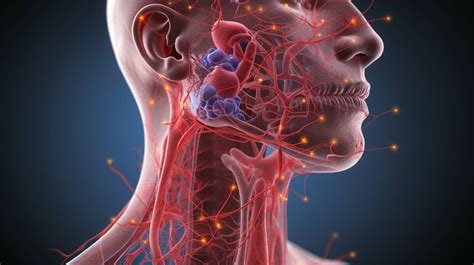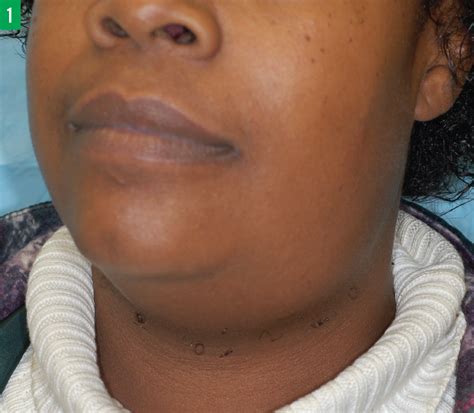Intro
Discover causes and symptoms of swollen glands below the jaw, including lymphadenopathy, infections, and swollen lymph nodes, and learn how to treat and manage swollen jaw glands effectively.
The human body is a complex and fascinating system, with various parts working together to maintain overall health. One common issue that affects many people is swollen glands, particularly those located below the jaw. This condition can be uncomfortable, painful, and even affect a person's self-confidence. Understanding the causes, symptoms, and treatment options for swollen glands below the jaw is essential for anyone experiencing this issue.
Swollen glands below the jaw can be a sign of an underlying health problem, and it's crucial to identify the root cause to receive proper treatment. The glands in this area are part of the lymphatic system, which plays a vital role in filtering out toxins, bacteria, and other harmful substances from the body. When these glands become swollen, it can indicate an infection, inflammation, or another health issue that needs attention. In this article, we will delve into the world of swollen glands below the jaw, exploring the possible causes, symptoms, and treatment options available.
The lymphatic system is a network of glands, vessels, and organs that work together to protect the body against infection and disease. The glands below the jaw, also known as submandibular glands, are part of this system and play a crucial role in filtering out harmful substances from the body. When these glands become swollen, it can be a sign of an underlying health problem, such as a viral or bacterial infection, autoimmune disorder, or even cancer. Understanding the causes and symptoms of swollen glands below the jaw is essential for receiving proper treatment and preventing further complications.
Causes of Swollen Glands Below Jaw

Viral and Bacterial Infections
Viral and bacterial infections are common causes of swollen glands below the jaw. These infections can cause the glands to become inflamed, leading to swelling, pain, and discomfort. Some common viral and bacterial infections that can cause swollen glands include mononucleosis, strep throat, and sinus infections. In some cases, these infections can be treated with antibiotics or antiviral medications, while in other cases, they may require more extensive treatment.Autoimmune Disorders
Autoimmune disorders, such as rheumatoid arthritis and lupus, can also cause swollen glands below the jaw. These disorders occur when the body's immune system mistakenly attacks healthy tissues, leading to inflammation and swelling. In some cases, autoimmune disorders can be treated with medications or lifestyle changes, while in other cases, they may require more extensive treatment.Symptoms of Swollen Glands Below Jaw

Pain and Discomfort
Pain and discomfort are common symptoms of swollen glands below the jaw. The affected area may feel tender to the touch, and the pain can range from mild to severe. In some cases, the pain can radiate to other areas of the face and neck, making it difficult to swallow, breathe, or speak.Fever and Fatigue
Fever and fatigue are also common symptoms of swollen glands below the jaw. The body's immune system may be working overtime to fight off an infection, leading to feelings of exhaustion and weakness. In some cases, the fever can be high, requiring medical attention to prevent further complications.Treatment Options for Swollen Glands Below Jaw

Antibiotics and Antiviral Medications
Antibiotics and antiviral medications are commonly used to treat swollen glands below the jaw. These medications can help to clear up an underlying infection, reducing swelling and pain. In some cases, antibiotics or antiviral medications may be prescribed for an extended period to ensure that the infection is fully cleared.Lifestyle Changes
Lifestyle changes, such as getting plenty of rest and staying hydrated, can also help to treat swollen glands below the jaw. The body's immune system needs time to recover from an infection, and getting plenty of rest can help to speed up the recovery process. Staying hydrated can also help to flush out toxins and reduce swelling.Prevention and Self-Care

Practicing Good Hygiene
Practicing good hygiene is essential for preventing the spread of infection. Washing your hands regularly, especially after using the bathroom and before eating, can help to prevent the spread of bacteria and viruses. Avoiding close contact with people who are sick can also help to reduce the risk of infection.Eating a Healthy Diet
Eating a healthy diet can also help to keep the immune system strong. Foods that are rich in vitamins and minerals, such as fruits, vegetables, and whole grains, can help to boost the immune system and reduce the risk of infection.What are the common causes of swollen glands below the jaw?
+The common causes of swollen glands below the jaw include viral and bacterial infections, autoimmune disorders, and cancer.
How can I prevent swollen glands below the jaw?
+Practicing good hygiene, getting plenty of rest, eating a healthy diet, and staying hydrated can help to prevent swollen glands below the jaw.
What are the symptoms of swollen glands below the jaw?
+The symptoms of swollen glands below the jaw include swelling, pain, and discomfort in the affected area, as well as fever, fatigue, and weight loss.
In conclusion, swollen glands below the jaw can be a sign of an underlying health problem, and it's essential to identify the root cause to receive proper treatment. By understanding the possible causes, symptoms, and treatment options available, individuals can take steps to prevent and manage this condition. We invite you to share your thoughts and experiences with swollen glands below the jaw in the comments section below. If you found this article helpful, please consider sharing it with others who may be experiencing similar issues. Remember to consult a healthcare professional if you are experiencing any symptoms of swollen glands below the jaw.
